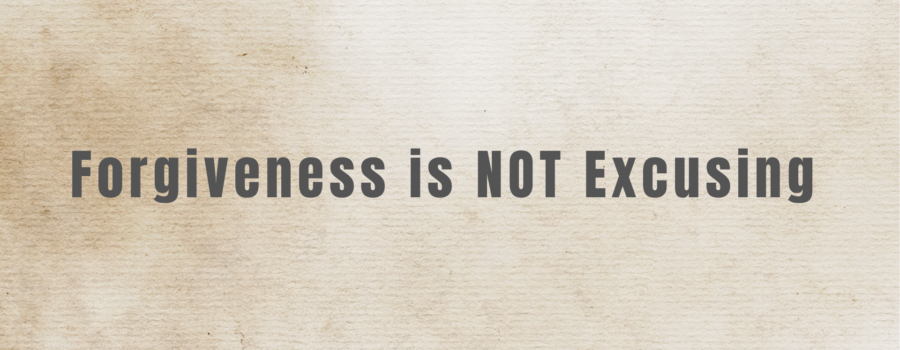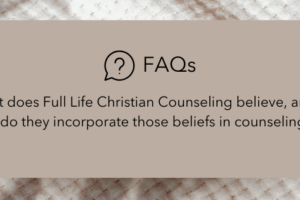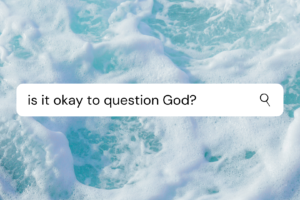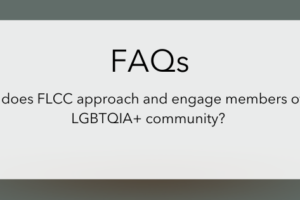Growing up in the church, and many denominations within the church at that, I’ve heard about forgiveness all of my life. I’ve learned about how Jesus forgives us of sin and how His death on the cross took our punishment for sin. I’ve learned how we’re supposed to forgive others, to forgive like He has forgiven us (Col. 3.13).
I’ve even been told I’m not great at forgiveness, or that “love keeps no record of wrongs.” I was indirectly and sometimes directly taught that we forgive freely, without boundaries, because that’s what Jesus wants us to do. I’ve even felt forced, guilt-tripped, or manipulated into forgiveness. Accused of not forgiving because I’ve set a boundary.
I’ve watched people I love and care about “turn the other cheek” from abuse, neglect, manipulation, threats, and even defamation. I’ve seen people continue on in relationships after being cheated on, lied to, or taken advantage of. All in the name of forgiveness. It felt like we were just giving others a free pass to keep doing what they’ve always done. And something about that felt very wrong to me.
And so I developed a narrative about forgiveness being akin to a doormat kind of situation. Where we keep silent, don’t call out unhealthy and hurtful behaviors, don’t get angry, turn the other cheek and let people continue to hurt us because that’s what Jesus did. And that’s what He wants us to do, too.
All of us, whether we grew up in faith community or practiced religion or not, have narratives about forgiveness. We believe certain things about it, whether we realize that or not. I think it’s important to consider what it is you believe about forgiveness. What do you think it means? What does it entail? How do you know that? What happens after we forgive? Where did you learn messages about forgiveness (home, peers, media, peers, church, family, etc.)?
There are many things that we’ve probably all believed about forgiveness that aren’t actually true. Maybe things that have enabled cycles of abuse to continue. Cycles of hurt and disrespect and carelessness in relationships. Things that have hurt us more than helped us.
We have to confront those beliefs and begin to unravel them. We have to see there’s a better way. There’s a healthier, even a more God-honoring, people-honoring, way.
I’d encourage you to take about thirty minutes and listen to this short mini-series I shared on my podcast, Be Known, about forgiveness to continue thinking about what forgiveness is and what it’s not, what it does actually entail, why we need to practice it, and why it’s hard.
But today, I just simply want to confront one unhealthy narrative about forgiveness. Many of us think that forgiveness means justifying or excusing behavior that was wrong, because if we’re to forgive as He has forgiven us, and His forgiveness brings justification, then shouldn’t ours do the same?
I said it in the podcast, and I’ll say it here. “We’re asked to forgive like He has forgiven us, [but] we have to remember that our forgiveness doesn’t do what His did. What His does.” We’re human beings. He is God. Our forgiveness can’t do what His does.
But I’ll even gently remind you that even His forgiveness doesn’t excuse. When the woman caught in adultery was bought to Jesus (John 8:1-11), and he sends her accusers away, He gently says to her, “Go and sin no more.” He is acknowledging that what she did was wrong. She is forgiven, but he tells her to sin no more. He’s not excusing away her behaviors here. Go and sin no more is his boundary statement to her. “It’s a ‘I forgive you, but please stop doing this’.”
Many people also struggle to forgive because they don’t want to say, “It’s okay. I forgive you.” They don’t want the other person to hurt them anymore, and they don’t want to be a doormat anymore. And they don’t want the person to think it was okay. So they often hold grudges, put up big boundary walls, and cut a person out of their life. And their resentment and bitterness only grows and hurts them more and more.
Others will too quickly write off behaviors with an “it’s okay.”
But hear me right now: No, it’s not okay. We’re not saying that when we forgive. It’s not okay they called you names. It’s not okay they abused you. It’s not okay they neglected you. It’s not okay they betrayed you. It’s not okay they manipulated you, guilt-tripped you, made you feel small. It’s not okay they bullied you, lied to you, or hurt you.
Forgiveness is NOT saying “it’s okay.” It’s not excusing. Because, it’s not okay. But forgiveness is more of an internal process. It’s an acknowledgement of the wrong, how it affected you, why it wasn’t okay. It’s allowing yourself to feel what you feel, and then releasing all of that back over to God over time when you’re ready. Sometimes, it’s appropriate to tell a person and then implement healthier boundaries in that relationship. We can say, “I felt __(insert feeling word)__when you ____(specific behavior that hurt you)__because __(why it was hurtful or wrong)__. It was not okay, and it hurt me. I’m choosing to forgive you (or I’m working on forgiving you, but I haven’t yet), but I will not allow you to continue treating me that way. Here’s what I need now.”
Some are angry reading this. Blasphemy, Kerrah. We are supposed to forgive just like He’s forgiven us.
That’s okay if you’re angry. Your anger is telling you something, and I think you can be curious with yourself about what that is. But I don’t tell you all of this to stir anger. Instead, I’m sharing it because I know what it’s like to force myself (or be forced to) to try to forgive (with an unhealthy picture of what forgiveness is) and then continue on in situations that kept hurting me. And I’ve watched others suffer this way, too.
You can find a way to forgiveness. It will take time. Sometimes lots of it. It will take support— from God, from safe others. But you can find a way. And when you do, it will only help you heal and move forward. But before that, you’ve got to confront inaccurate and unhelpful narratives you’ve developed about forgiveness and understand what it truly is.






Recent Comments